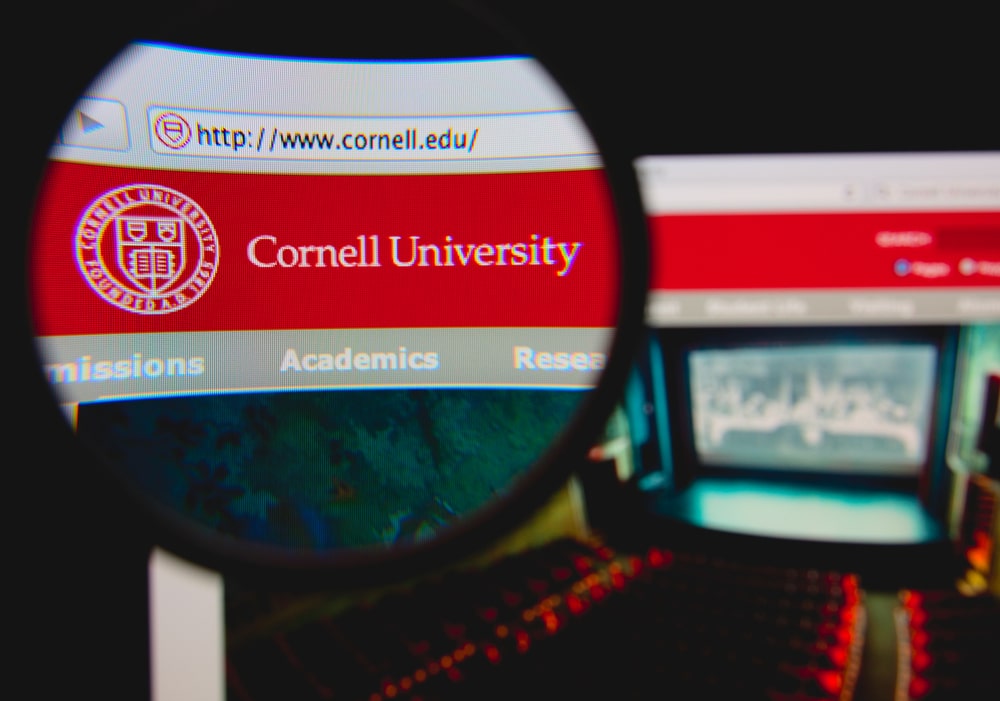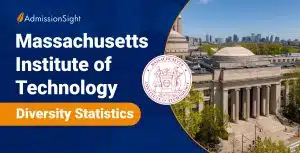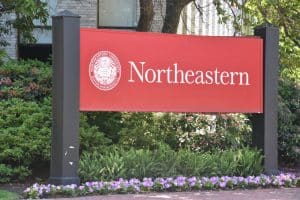Cornell Motto
The Cornell Motto is more than just a phrase; it’s a guiding principle that shapes the institution’s ethos. In this blog, we’ll explore how this motto has influenced the culture and values of a renowned educational institution. Stay tuned to learn how these simple yet profound words can have a lasting impact on your academic journey. Take action now to understand how a motto can define an institution’s identity and inspire its community.
The Origin of the Cornell Motto
The story of Cornell University’s motto is as intriguing as the institution itself. To fully comprehend its significance, one must traverse back in time to understand the events leading to its inception.
The Founding of Cornell University
Cornell University was founded in 1865, amid the tumultuous era of the American Civil War. It was the vision of Ezra Cornell, a self-made entrepreneur and philanthropist, who believed fervently in the power of education. Alongside Andrew Dickson White, a seasoned academic and statesman, they structured Cornell as a non-sectarian, coeducational institution, a decision that was ahead of its time.
Their intention was to provide an institution where ‘any person can find instruction in any study.’ This conviction was not only groundbreaking but also formed the basis for the University’s motto.
The Motto’s Initial Conception
The initial conception of the motto, like the university itself, can be traced back to Ezra Cornell. His vision of an inclusive and comprehensive educational institution is reflected in the chosen phrase: “I would found an institution where any person can find instruction in any study”. This commitment to broad-based education and inclusivity is clearly embedded in the roots of the motto.
As the university took shape, the founders recognized the importance of encapsulating their ideals and aspirations in a succinct yet powerful statement. They wanted a motto that would inspire and guide generations of students, faculty, and staff.
After much contemplation and discussion, Ezra Cornell’s words became the cornerstone of the university’s motto. The phrase perfectly captured the essence of their vision for Cornell University – a place where knowledge knows no boundaries and where individuals from all walks of life can come together to pursue their passions.
With the motto in place, Cornell University began its journey as an institution dedicated to providing a transformative educational experience. The founders’ commitment to inclusivity and the pursuit of knowledge in all its forms laid the foundation for the university’s academic programs and campus tradition.
Over the years, the motto has become a rallying cry for the Cornell community. It serves as a constant reminder of the university’s core values and its mission to foster intellectual curiosity, innovation, and social responsibility.
Today, the Cornell motto continues to inspire and guide students, faculty, and staff in their pursuit of excellence. It stands as a testament to the enduring legacy of Ezra Cornell and Andrew Dickson White, and their unwavering belief in the transformative power of education.
The Latin Phrase and Its Translation
The Cornell motto, originally penned in English, was later translated into Latin to offer an aura of the classical tradition. However, the original essence remained intact.
Understanding Latin Context
The translated motto, “Cornell Universitas: ‘Cuiusvis hominis est errare'”, inscribes itself within the broader academic tradition of using Latin to express foundational ideals. Understanding its full import requires not just a simple translation, but an appreciation of the cultural and historical context. This can prove to be a challenge due to the multifaceted nature of the Latin language itself.
Latin, the language of ancient Rome, holds a significant place in the history of academia. It serves as a bridge between the past and the present, connecting modern institutions like Cornell University with the rich tapestry of classical knowledge and wisdom. The use of Latin in mottos and inscriptions adds a sense of gravitas and timelessness, evoking a sense of tradition and intellectual heritage.
Within the context of Cornell University, the Latin translation of the motto carries a profound meaning. It encapsulates the spirit of exploration and intellectual curiosity that lies at the heart of the institution. By embracing the Latin language, Cornell pays homage to the great thinkers and scholars who have come before, while also affirming its commitment to the pursuit of knowledge.
The English Interpretation
The English interpretation of the Latin phrase elucidates its true essence. Loosely translated, it means ‘Any person can err’. This interpretation reflects the humanist values of the University, acknowledging the process of learning through making mistakes as a fundamental part of growth and development.
At Cornell University, the motto serves as a reminder that no one is infallible and that errors are an inevitable part of the learning process. It encourages students and scholars to embrace their fallibility and view mistakes as valuable opportunities for growth. By embracing the idea that anyone can err, Cornell fosters an environment that values intellectual humility and encourages the pursuit of knowledge with an open mind.
The English interpretation of the Latin phrase also highlights the inclusive nature of Cornell University. By using the term “any person,” the motto emphasizes that the pursuit of knowledge is not limited to a select few, but is open to all individuals, regardless of their background or previous knowledge. This inclusive approach reflects Cornell’s commitment to diversity and its belief in the power of education to transform lives.
The Philosophical Implications of the Motto
Deciphering the philosophical implications of the motto takes us on a complex and nuanced exploration of its significance within the wider context of education and society.
When we delve into the depths of the motto, “Any person can err,” we uncover a multitude of profound ideas that resonate with Cornell University’s educational philosophy. This motto serves as a guiding principle, emphasizing the essence of intellectual freedom and resilience.
At its core, the motto encourages students to embrace their fallibility and learn from their mistakes. It recognizes that errors are an inevitable part of the learning process and that true growth comes from the ability to acknowledge and rectify them. By embracing this mindset, students are empowered to consistently pursue knowledge, irrespective of the subject.
The motto’s relevance extends beyond the classroom, permeating every aspect of student life on campus. It becomes a cornerstone of Cornell’s identity, woven into the very fabric of the university community. This creates an environment where students feel safe to explore multifaceted domains and engage in motivated, fearless learning.
Within this supportive framework, students are encouraged to take risks, push boundaries, and challenge conventional wisdom. The motto becomes the driving force behind creating a diverse and dynamic academic community at the University. It fosters an atmosphere of collaboration and intellectual curiosity, where students are not afraid to question established norms and seek innovative solutions to complex problems.
Moreover, the motto instills a sense of humility and empathy in students. Acknowledging that any person can err, cultivates a deep understanding of the human condition and the inherent fallibility that exists within all of us. This recognition creates a compassionate and inclusive community, where individuals are not judged solely by their successes, but by their ability to learn and grow from their failures.
As students navigate their academic journey at Cornell, they are constantly reminded of the motto’s significance. It serves as a constant reminder that mistakes are not to be feared but rather embraced as opportunities for growth and self-improvement. This mindset becomes ingrained in the collective consciousness of the university, shaping the character and values of its students.
In conclusion, the motto “Any person can err” holds profound philosophical implications that resonate throughout Cornell University. It encapsulates the essence of intellectual freedom, resilience, and the pursuit of knowledge. By embracing this motto, students are empowered to explore, learn, and grow, creating a vibrant and inclusive academic community.
The Motto’s Influence on Cornell’s Identity
The influence of the motto on Cornell’s identity is massive and multilayered. It forms the backbone of the University’s traditions and shapes its entire culture.
Founded in 1865 by Ezra Cornell and Andrew Dickson White, Cornell University has embraced a motto that encapsulates its core values and principles. The motto, “I would found an institution where any person can find instruction in any study,” has become an integral part of Cornell’s identity, permeating every aspect of campus life.
The Motto in University Traditions
The influence of the motto can be observed in the University’s traditions. From convocation to commencement, the manifestation of ‘any person can err’ echoes throughout the student life cycle. During convocation, incoming students are reminded of the motto’s significance as they embark on their academic journey. It serves as a reminder that mistakes are a natural part of the learning process and that growth comes from embracing challenges.
As students progress through their studies, they encounter numerous opportunities to witness the motto’s influence. From the annual Dragon Day celebration, where creativity and collaboration are celebrated, to Slope Day, a day of relaxation and camaraderie before final exams, the motto’s spirit is present in the collective experiences of Cornellians.
Furthermore, the motto is deeply intertwined with Cornell’s commitment to public service and engagement. The University’s tradition of giving back to the community through initiatives like the Cornell Public Service Center and the Big Red Barn, a student-run community center, exemplifies the motto’s emphasis on inclusivity and accessibility.
The Motto’s Role in Shaping University Culture
The motto plays a significant role in shaping the University’s culture. By fostering an ethos of open-mindedness and resilience, the motto has fostered a diverse and inclusive community at Cornell, echoing through the academic halls and resonating with each and every member.
At Cornell, the motto’s influence can be seen in the vibrant student organizations and clubs that cater to a wide range of interests and backgrounds. From cultural clubs that celebrate diversity to academic societies that promote intellectual exploration, the motto’s spirit encourages students to embrace their passions and pursue personal growth.
Moreover, the motto’s impact extends beyond the student body. Faculty and staff at Cornell embody the motto’s ideals by promoting an environment of intellectual curiosity and collaboration. This commitment to interdisciplinary research and teaching has led to groundbreaking discoveries and innovations that have shaped various fields of study.
The motto’s influence can also be felt in Cornell’s alumni community. Graduates carry the values instilled by the motto into their respective careers and endeavors, making a positive impact on society. From groundbreaking research in medicine to influential leadership in politics and business, Cornell alumni continue to embody the motto’s spirit and contribute to the betterment of the world.
In conclusion, the motto, “I would found an institution where any person can find instruction in any study,” has left an indelible mark on Cornell’s identity. It permeates the University’s traditions, shapes its culture, and serves as a guiding principle for students, faculty, and alumni alike. The motto’s enduring influence continues to inspire and empower the Cornell community to embrace intellectual curiosity, inclusivity, and the pursuit of knowledge.
The Contemporary Relevance of the Cornell Motto
In an ever-evolving societal and academic landscape, the lasting relevance of the Cornell motto is profound.
The Cornell motto, “I would found an institution where any person can find instruction in any study,” is not just a simple phrase, but a guiding principle that continues to shape the university’s mission and values. It serves as a constant reminder of the importance of embracing diversity, fostering intellectual curiosity, and promoting interdisciplinary collaboration.
The Motto in Today’s Academic Environment
In an era where education is increasingly specialized and streamlined, Cornell’s motto maintains its relevance by offering a refreshing reminder of the importance of a comprehensive, open mindset. The essential stress on failure as a part of the learning process makes it increasingly pertinent in today’s competitive academic environment.
At Cornell University, the motto encourages students and faculty to explore beyond their comfort zones, to venture into uncharted territories of knowledge. It emphasizes the value of interdisciplinary studies, where the boundaries between different fields are blurred, allowing for innovative ideas and groundbreaking discoveries.
Furthermore, the motto also highlights the significance of inclusivity in education. It emphasizes the belief that everyone, regardless of their background or previous academic experiences, should have the opportunity to pursue any subject of interest. This commitment to accessibility and equal opportunity creates a vibrant and diverse community of scholars, fostering a rich intellectual environment.
The Future of the Motto at Cornell University
With a history rich in tradition and an undying commitment to the ideals of education, the future of the motto at Cornell University appears equally promising. As the institution continues to evolve, nurturing individual passion, the motto will continue to inspire diverse paths of knowledge, providing a compass for those who learn, teach, and innovate at Cornell.
The Cornell motto serves as a guiding light for the university’s future endeavors. It encourages the exploration of emerging fields and the adaptation of traditional disciplines to address the challenges of the modern world. By embracing the motto’s principles, Cornell will continue to attract exceptional students and faculty who are driven by a shared commitment to intellectual growth and societal impact.
In conclusion, the Cornell motto is more than just a phrase; it encapsulates the University’s commitment to fostering an academic environment that cherishes inclusivity, resilience, and lifelong learning. As Cornell continues to evolve, so too will the enduring resonance of its magnificent motto.









































